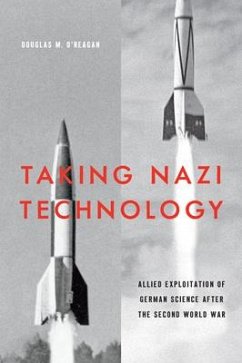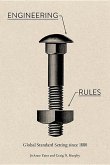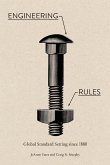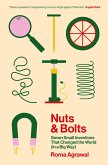During the Second World War, German science and technology posed a terrifying threat to the Allied nations. These advanced weapons, which included rockets, V-2 missiles, tanks, submarines, and jet airplanes, gave troubling credence to Nazi propaganda about forthcoming "wonder-weapons" that would turn the war decisively in favor of the Axis. After the war ended, the Allied powers raced to seize "intellectual reparations" from almost every field of industrial technology and academic science in occupied Germany. It was likely the largest-scale technology transfer in history. In Taking Nazi Technology, Douglas M. O'Reagan describes how the Western Allies gathered teams of experts to scour defeated Germany, seeking industrial secrets and the technical personnel who could explain them. Swarms of investigators invaded Germany's factories and research institutions, seizing or copying all kinds of documents, from patent applications to factory production data to science journals. They questioned, hired, and sometimes even kidnapped hundreds of scientists, engineers, and other technical personnel. They studied technologies from aeronautics to audiotapes, toy making to machine tools, chemicals to carpentry equipment. They took over academic libraries, jealously competed over chemists, and schemed to deny the fruits of German invention to any other land--including that of other Allied nations. Drawing on declassified records, O'Reagan looks at which techniques worked for these very different nations, as well as which failed--and why. Most importantly, he shows why securing this technology, how the Allies did it, and when still matters today. He also argues that these programs did far more than spread German industrial science: they forced businessmen and policymakers around the world to rethink how science and technology fit into diplomacy, business, and society itself. "Taking Nazi Technology details what the Americans found when they began looting Nazi Germany. At a time when the United States has become deeply insecure about its technological leadership, the story has important lessons for policymakers."--National Interest "O'Reagan's masterful study of the Allies' technology transfer in all four zones and in all of its many facets, successes, and shortcomings is a most welcome contribution to Allied occupation history and to the history of technology in general."--Physics Today "[Taking Nazi Technology] provides a wide-ranging view of the scientific and technological exploitation carried out by all four of the powers that occupied Germany in 1945, without losing depth, nuance, or historical context. This is a story that has not been widely told before, and where it has been, its telling has generally been uneven, speculative, sensationalized, or all three. O'Reagan explains the policies and plans that underpinned these dramatic tales and fits them into the broader historical concepts to which they relate."--Science "O'Reagan has done an important service to move the literature beyond the narratives surrounding individual programs and toward new and bigger themes."--Historical Studies in the Natural Sciences "A very interesting new book."--Lawyers, Guns & Money
Hinweis: Dieser Artikel kann nur an eine deutsche Lieferadresse ausgeliefert werden.
Hinweis: Dieser Artikel kann nur an eine deutsche Lieferadresse ausgeliefert werden.








